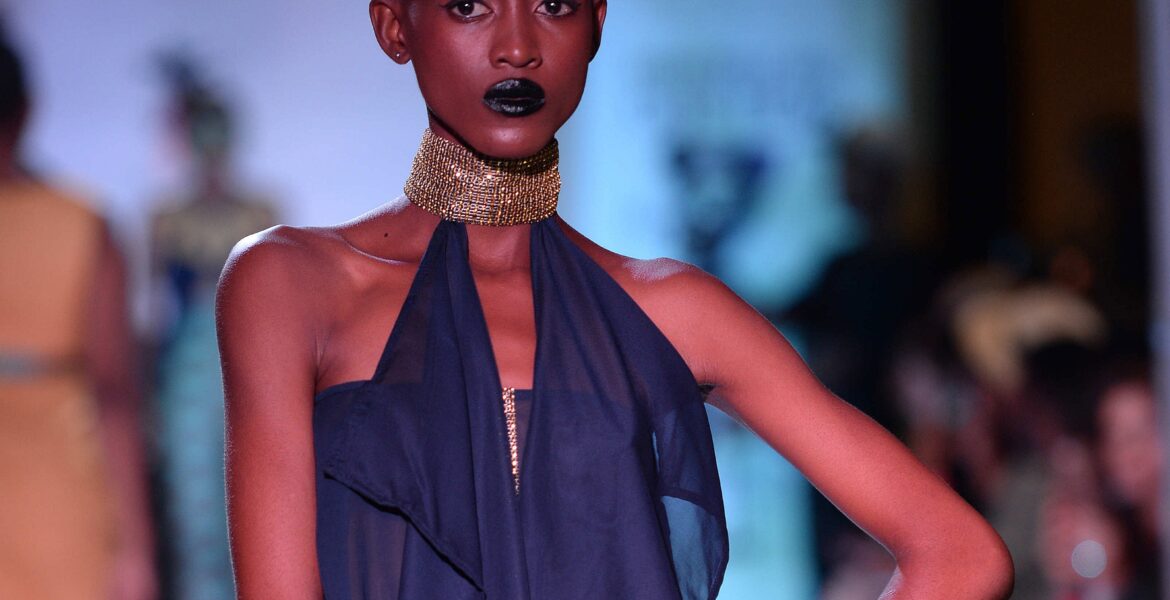Sustainability and indigenous culture won the day at this year’s Fashion Without Borders in Jo’burg that featured more than 18 fashion designers and 40 models from across the African continent. Botswana’s Mothusi Lesolle held sway in the sphere of fashion for social change. Staff Writer GOSEGO MOTSUMI reports
In a bid to transform fashion from the entertainment aspect into business and lifestyle, Fashion Without Borders (FWB) kicked off this year’s edition in Johannesburg, South Africa last weekend, featuring more than 18 fashion designers and 40 models from across the continent.
In its 8th edition in Joburg, the FWB programme started with Fashion Unpacked Masterclass, which was a showcase featuring Botswana designers NGUO, Donlu Amour, Kapari Flava and Black Excellence Clothing. “The fashion, textile and clothing industry has enormous potential to transform lives, particularly for women and youth,” said Serge Kabisoso, Co-founder and Creative Director at Effigy Productions, the company behind Fashion Without Borders.
“With the aim of reaching the fashion designers across different regions of Africa in order to give underdeveloped fashion situations access to the wider market of the African continent, this year’s edition is a blend of new talent and emerging and established names.”
Motswana fashion designer Mothusi Lesolle, who once auctioned a dress to address issues of the girl child, raised the hot topic of fashion for social change during the Masterclass workshop, noting that people have different ideas about how to impact fashion, especially for social change.
The iZaura owner cited international model Naomi Campbell’s campaign for poverty relief as an example of something in the realm of fashion for social change.
“My ideology of sustainability is based on my experience,” Lesolle said. “I was formally introduced to sustainability by a company called Eco Age when I was asked to create a gown that was showcased at Buckingham Palace. I say ‘formally’ because I would like us to acknowledge that sustainability has been a part of our daily lives long before it became fashionable.
“Sustainability is a hot topic but in this side of the world we still associate it with more developed communities. I grew up under sustainable practices in Serowe, living with my grandmother. She didn’t have the business acumen to understand that what she was practising every day could create wealth in the future. Grandmother would mix cow dung with different colour sands to create wall paintings at home. All this happened around us.”
Yet he could not figure out the meaning of sustainability when the established designer was challenged to create a sustainable gown. He also faced limited resources because Botswana’s textile and fashion industry is still heavily reliant on materials manufactured outside and a market limited in skills.
“These challenges are the reason why sustainability seems unachievable in developing communities,” Lesolle pointed out. “I believe when taught right, we can have the right capacity and embrace the concept of sustainability. The mophane cocoon, for instance, has been proven to be 100 percent silk.”
Lesolle is a proponent of commercialising culture and has started doing so with his “jale” scarfs as a modern interpretation of the mogagolwane, a blanket draped over shoulders by especially married women on formal occasions. This is similar to the way international luxury fashion brand Louis Vuitton was inspired by the BaSotho legacy to create blanket fashion pieces, leaving many native Africans resentful.
“Commercializing culture means conceptualising and packaging our inheritance in a way that is able to attain competitive advantage within the market,” Lesolle said. “It’s a challenge to create handmade cultural items in bulk, but in places like Asia they are able to create machinery that can replicate those products to push numbers. That is where we lack as developing communities.”
This fashion designer is also an advocate of ethical fashion that ensures that people involved in creating their artistry and the communities that they work within benefit positively. This is because Lesolle is aware that today’s consumer is conscious of how their clothes are made and the people making them after the “Who Made Your Clothes” campaign inspired by child labour stories in Asia trended worldwide.
“It is important for us to advance technical skills to be able to improve manufacturing in Africa because we have skills but lack capacity,” he said. “We need to turn our indigenous culture to money and to decolonise our minds because we have the power as Africa yet the developed countries set trends.”
FWB collaborated with its long standing partners, The Voice newspaper, AvonSouthAfrica #WHATCHMENOW, SABC News, NEWSROOM AFRICA, LeAfrika BLM Naturals and Perfect Choice. The event was held at The Radisson Blu Gautrain Hotel under strict COVID-19 regulations over three days of creativity, ingenuity and self-expression.

